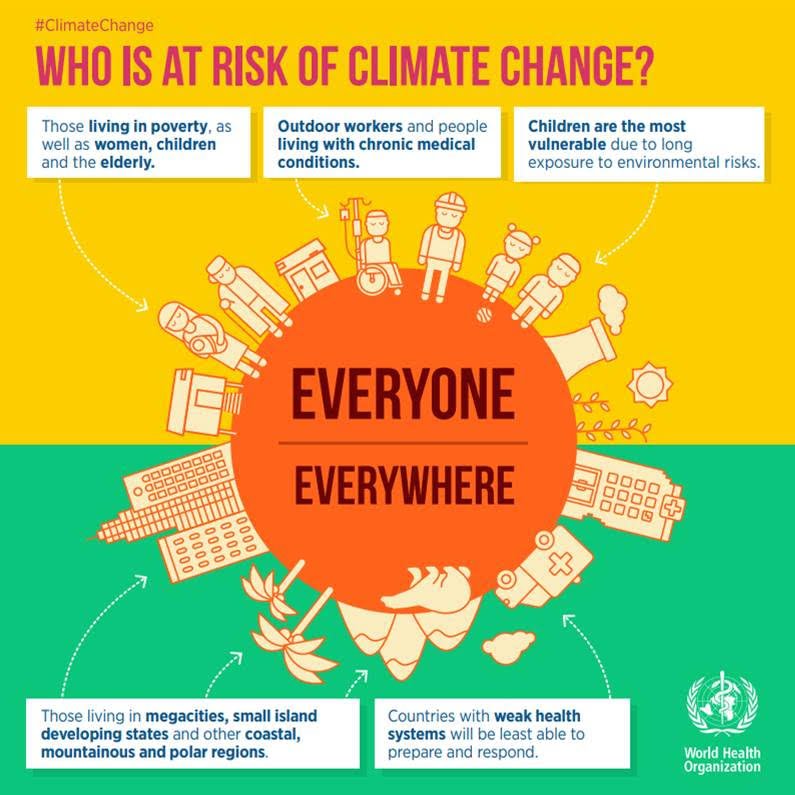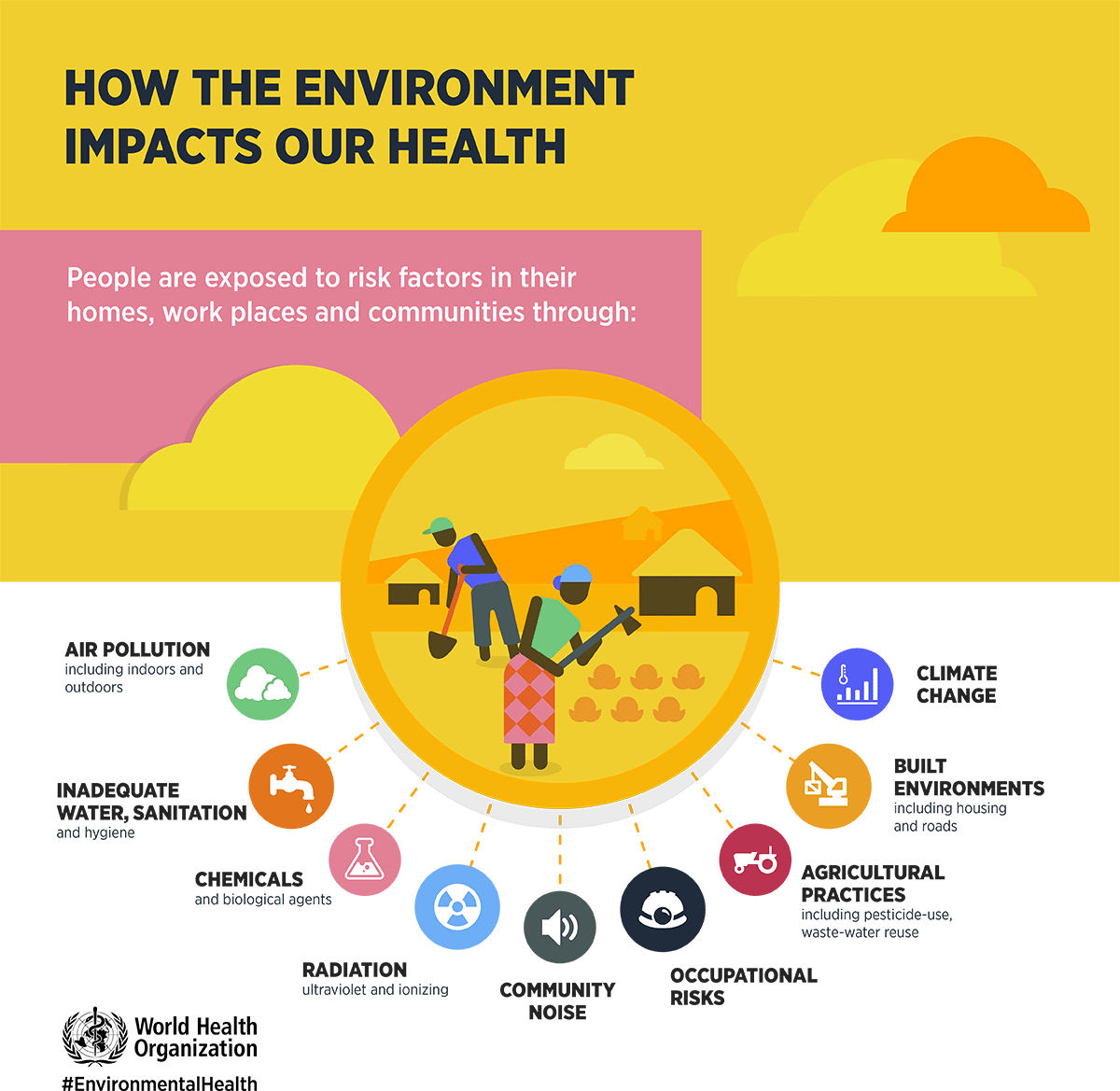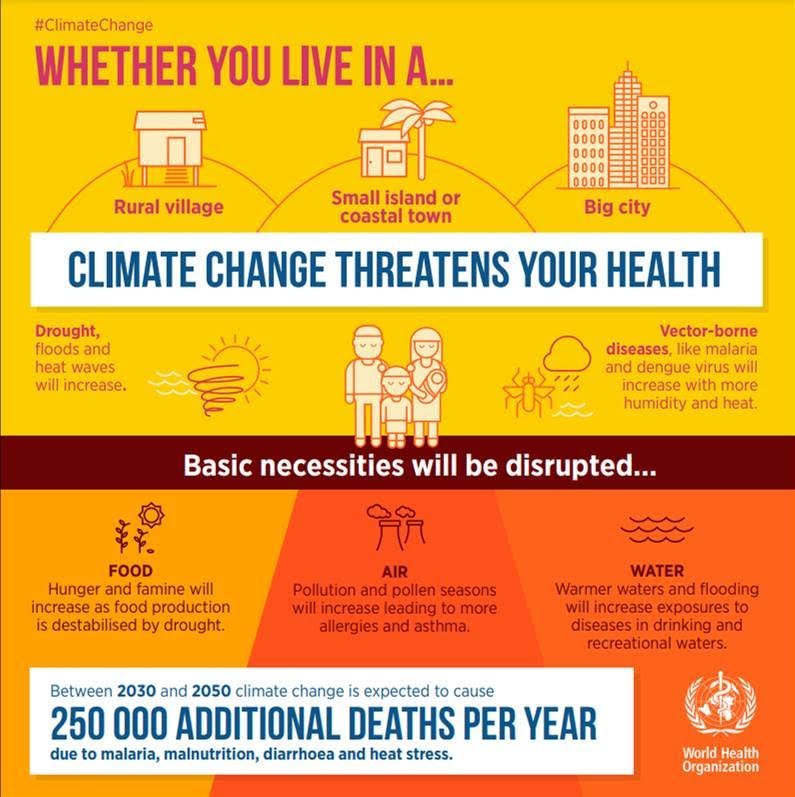NASSAU, BAHAMAS — “It’s not our fault, but it is our fight,” said Brittney Jones about climate change and its impact on health in The Bahamas.

“Countries like ourselves are on the frontline of the impact of climate change due to extreme weather events, flooding, temperature changes and precipitation.”
Jones is the climate change and health focal point for PAHO/WHO Bahamas, Turks & Caicos Islands Country Office.
PAHO is working with the Ministry of Health and Wellness and the Department of Environmental Planning and Protection to implement a project: “Strengthening Climate Resilient Health Systems in The Bahamas”.
The expected product is the completion of the health chapter of the National Adaptation Plan (HNAP). It is part of a larger regional project — EU/ CARIFORUM Climate Change and Health Project, of which the country is a beneficiary.
Resilience to and preparation for the impact of climate change is critical for The Bahamas, which is placed amongst the top 10 most vulnerable island states in the world. Small Island Developing States (SIDS) like The Bahamas see rising temperatures from global emissions as a major threat to their health and way of life.
Globally, there is projected to be an additional 250,000 deaths due to climate change every year, Jones said.
PAHO is the implementing agency of the EU/ CARIFORUM Climate Change and Health Project. Regional health systems and populations remain highly vulnerable to impacts from climate change causing: extreme weather; negative effects on food and water security; impacts to health and well-being; lost/reduced work capacity; economic impacts; and challenges to attaining the Sustainable Development Goals (SDGs).
Human practices such as burning fossil fuels for power generation and destroying trees contribute to the greenhouse effect. Greenhouse gases like carbon dioxide, methane and nitrous oxide trap the heat of the sun in the earth’s atmosphere, causing an overall warming effect.
This causes a number of environmental changes that have implications for human health, including air pollution; drought; sea level rise; changes in rainfall, heat and humidity; intense storms such as hurricanes; and extreme temperature.
The EU/CARIFORUM project will help to improve the capacity of Caribbean countries to reduce the negative impacts of climate change on health. The plan is to use a One Health approach within the Caribbean Cooperation in Health Phase IV (CCH IV) Framework. This project will contribute to the reduction in mortality and morbidity from expected health consequences of climate change in Caribbean countries.
One Health takes an interdisciplinary/intersectoral approach, bringing together a cadre of climate change and health leaders from the Caribbean.
Sixteen member states of CARIFORUM and Cuba will benefit. Caribbean Forum of ACP States (CARIFORUM): Antigua and Barbuda, The Bahamas, Barbados, Belize, Dominica, Grenada, Guyana, Haiti, Jamaica, Montserrat, St Kitts and Nevis, St Lucia, St Vincent and the Grenadines, Suriname and Trinidad and Tobago.
The project will be implemented over a period of 60 months to the tune of 7 million Euros. The implementation team includes: PAHO/WHO, Caribbean Community Climate Change Centre (CCCCC); Caribbean Institute for Meteorology and Hydrology (CIMH); Caribbean Public Health Agency (CARPHA); University of Western Caribbean (UWI) and the Caribbean Disaster Emergency Management Agency (CDEMA). Additional partners are UNEP, FAO, UNCC and PAHO/WHO Collaborating Centers.








